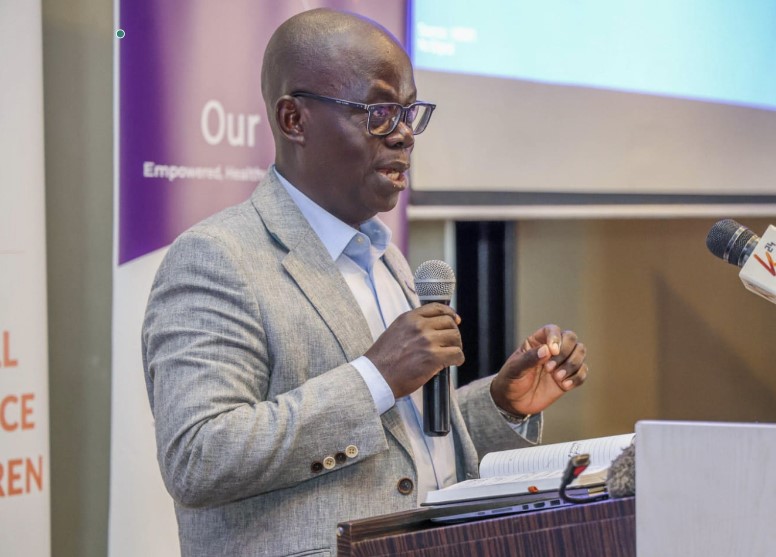A humanitarian organisation has asked the governments and relevant private institutions to allocate more funds to help address child hunger and malnutrition.
The 2024 Global Hunger Index ranks the country 100th out of
127 nations, indicating a troubling score of 25.0, which signifies a
"serious" level of hunger.

This situation underscores the urgent need
for comprehensive solutions to address food insecurity and ensure that no one
is left behind.
It is for that reason that World Vision Kenya implored the government and this institutions to allocate more funds to help address the situation.
The NGO estimates that 760,500 children urgently require nutritional support due to severe malnutrition.
According to the 2022 Kenya Demographic Health Survey, among
children aged 6 to 59 months, 18% are stunted, 5% are wasted, and 10% are
underweight.
“These statistics reflect not just numbers but real families struggling for their basic right to food," World Vision Kenya's National Director, Gilbert Kamanga said.
Kamanga said the current situation calls for immediate action to
reverse this trend and secure a better future for Kenya's children.
The Director also emphasized the need to foster climate-resilient agricultural practices, particularly in areas most vulnerable to environmental changes, including scaling up Farmer Managed Natural Regeneration to enable production of enough food to cater for the needs of the people.
In addition, he said there is a need to implement a multi-sectoral approach towards child nutrition and maternal health as part of comprehensive food security measures to end malnutrition in all its forms.
As an NGO concerned with humanitarian needs, Kamanga said they have intensified its efforts by implementing 107 programs in the fiscal year 2023 that focuses on various areas including Livelihoods and Resilience, Health and Nutrition, Water, Sanitation, and Hygiene (WASH), Education, Protection, Public Policy and Advocacy, and Humanitarian and Emergency Response.
"We have invested over
13.05 billion Kenyan shillings in food security projects, with more than 50% of
this funding aimed directly at combating hunger and malnutrition," he said.
“These initiatives have reached a total of 3,429,853 people,
including 1,495,512 adults and 1,934,341 children,” Kamanga added.
He further added that the recently launched ENOUGH campaign
aims to address child hunger and malnutrition across the country.
The initiative aligns with
Sustainable Development Goal 2 and calls for urgent action from all
stakeholders to ensure “ENOUGH nutritious food, ENOUGH government funding, and
ENOUGH political will” to eradicate child hunger.
“The campaign emphasizes the need for collaborative efforts from the government, civil society, and the private sector to tackle these pressing issues,” he added

![[PHOTOS] Kindiki inspects works at regional centre in Kwale](/_next/image?url=https%3A%2F%2Fcdn.radioafrica.digital%2Fimage%2F2025%2F04%2Fc68aa00b-39bc-4214-bafe-80e8e38b1e60.jpg&w=3840&q=100)









